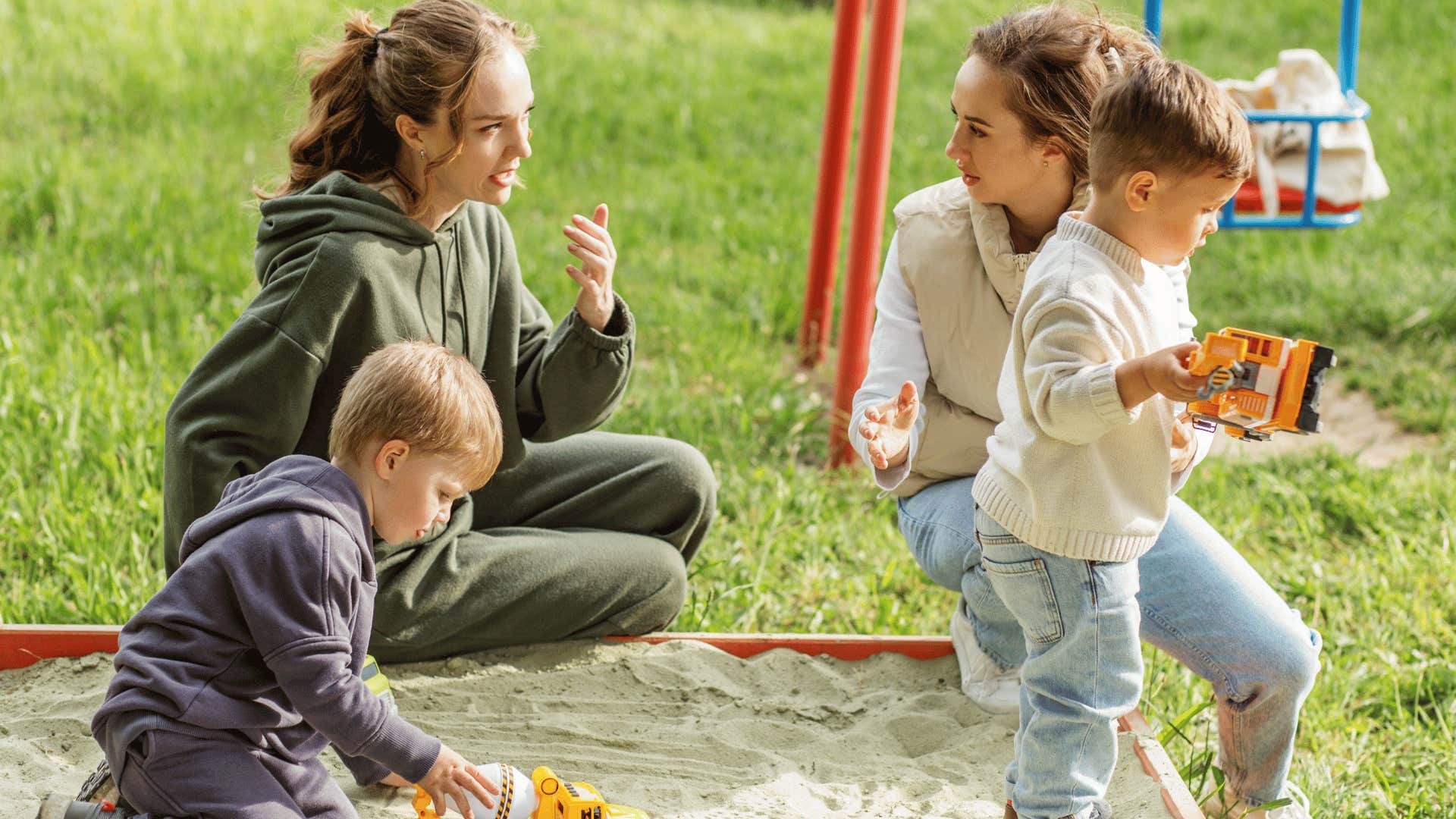8 Unique Traits Of Popular People Who Collect Friends Like Pokémon, According To Psychology
Psychology reveals the quirky traits that make people irresistible social butterflies.
 Getty Images | Unsplash
Getty Images | Unsplash Making friends as an adult can be challenging, especially when people have already established their friendship groups and hectic lives that don’t allow enough time for socialization as it is. You can be out at a party, a networking event, or stuck in the jury duty waiting room, and you will likely find that one Pokeémon-level popular person who walks in and somehow becomes best friends with every person they talk to.
However, while it’s difficult, it’s not impossible. Being bold and putting yourself out there is easier to do if you’re more social and extroverted, but if you’re not, that doesn’t mean you’re doomed to a life of loneliness.
Here are the unique traits of popular people who collect friends like Pokémon:
1. They know how to build a social circle
 DavideAngelini / Shutterstock
DavideAngelini / Shutterstock
Most of us have never had someone teach us how to build a social circle. Instead, for most of our lives, we've just made friends with whoever shared a certain life stage with us: neighborhood kids, people we played on sports teams with, and classmates makeup where the typical adults get their friends from.
These people may become lifelong friends, but this is often not the case. Interests change as we grow and many of us start to feel isolated when we no longer have the same thoughts, feelings, and interests as these people if we ever shared them at all.
Consider the results of a survey of over 2000 Americans about making friends as an adult:
- The average American says they haven't made a new friend in five years.
- For the majority, popularity peaks at age 23.
- For 36%, popularity peaks before age 21.
- 82% feel like friendships are hard to find.
Similarly, a 2013 survey by researchers in Germany combined data from over 177,000 participants across 277 studies. They discovered that friendship networks had been shrinking for the past 35 years.
In other words, the research shows that adults are terrible at building and maintaining a circle of friends.
Social media keeps us busy with the illusion of a social life, but it just distracts us from hunger pangs for real human connection. Part of having a happy life is having a list of people you see in person regularly that you enjoy.
Seeing your friends in person and having social interactions with them there, not just on a digital screen, is the key to having a happy life in real life.
2. They use their kids to help build networks
 OlhaTsiplyar / Shutterstock
OlhaTsiplyar / Shutterstock
We often feel overwhelmed by the number of things we need to accomplish during our adult lives. You are not alone if you feel socially isolated because of your children, work, relationships, and other responsibilities.
A study from the American Psychological Association of young people's social networks found that those who were in relationships had, on average, two fewer close social ties. Those with children had lost out even more; they'd lost three close social ties, including family members.
The trick here is to remember that if you're a parent or in a relationship, you're part of a new world. It's hard to be friends with people who live in a different world than you because they're operating on different priorities. But the nature of being a parent is that you'll end up with a lot of potential friends.
3. They value quality over quantity
 Yuri A / Shutterstock
Yuri A / Shutterstock
Too many adults, especially those socially stunted from college dorm life, think that finding friends means joining a group at the bar every Sunday to drink and watch sports.
I get it. I used to try and meet people just like this, but you’re not going to build fulfilling or lasting relationships by meeting random drinkers at bars.
Acting like an adult means forming your relationships with intention, with purpose. True friendship starts with spending time around people who are good candidates for building lasting bonds. This means finding people who have similar interests that can bind you together.
4. They seek out people with similar passions or interests
 JLco Julia Amaral / Shutterstock
JLco Julia Amaral / Shutterstock
So if you want to socialize and build relationships, as mentioned above, join a community that revolves around what you are already passionate about or join a community whose passion you do not yet share but can develop.
I recommended the first route since it’s a more natural path to enjoyment, but your interests may be too niche to easily find a group that shares them. In that case, take the second path. It’s just faster.
Once you connect with people in a group, you have an automatic topic to discuss that you know they’ll enjoy. Spending time together is easy.
Now, that’s all well and good, but you’re probably thinking, "Duh ... of course you can hang out with people whose interests you share." That’s the easy part. Finding the group in the first place — that’s hard."
That’s fair. Figuring out which group to join and how to fit in with other members who’ve been there for a while is where a lot of people go wrong. That brings me to my next tip.
5. They try new activities to build a social group around
 Dmitry Molchanov / Shutterstock
Dmitry Molchanov / Shutterstock
We live in the Internet age. It’s not difficult to identify new interests or find communities. There are groups and activities for everything. Your goal is not to find individual people, but communities.
Don’t open social media and stalk individuals who claim your hobby on their profile. Communities and groups are more welcoming to strangers, and they provide a greater chance of meeting someone you’ll be compatible with.
If you make ten new acquaintances, chances are good you’ll become friends with at least one of them. Get the numbers on your side. That’s no guarantee you’ll get along with everyone in the circle. Involve yourself with multiple groups, all with a reasonable amount of people. The larger the community size the more potential long-term friendships.
A 2018 study found that finding activities to build social groups fosters positive outcomes, including reduced stress, improved social relationships, and increased happiness, belonging, and overall well-being. Interacting with diverse groups and experiencing different perspectives can increase personal resilience and adaptability, helping individuals navigate various social situations and adapt to new environments.
6. They present themselves as 'unselfish experts'
 LevLievin / Shutterstock
LevLievin / Shutterstock
Once you’re part of a group, getting people to like you is straightforward. Present yourself to the group in one of two ways: as the unselfish expert or the eager newbie.
The unselfish expert approach works if you find a group of people doing things you already have some expertise in. This approach establishes your instant value to the group. They’ll want you to stay because you bring a wealth of knowledge and experience. Leverage this respect into real friendship.
The opposite approach is if you enter the group with zero knowledge but you make up for that with zero ego. You’ve got an authentic curiosity for learning everything you can.
You’re the new guy. Everybody likes the new guy.
7. They ask people about themselves
 Hananeko_Studio / Shutterstock
Hananeko_Studio / Shutterstock
People generally like to talk about what they enjoy, so get others in the group talking for hours by asking them to show you the ropes.
The best phrases to use run along the lines of, “Oh, wow, I’ve never heard about that. Tell me more!” By allowing others to present themselves as experts, you’ll make them feel smart and important. The trick is to then use what you learn and show that you are taking the advice of your new group.
People love it when a person takes their advice. It’s a way to bond because you’re demonstrating trust and respect. If you respond to other members’ teaching with enthusiasm, you’ll cultivate true friendship.
Encouraging people to talk about their favorite things can boost well-being, foster deeper connections, and even improve cognitive function by promoting positive emotions and social interaction. A 2023 study concluded that by discussing favorite things, you can gain a better understanding of other people's perspectives and values, which can lead to more empathy and understanding.
8. They step out of their comfort zone
 Face Stock / Shutterstock
Face Stock / Shutterstock
This is huge for introverts and people with social anxiety. If you’re going to make friends as a full-grown adult, there’s no reason to be intimidated. These approaches will get you started, but they’re not the entirety of friendship.
No matter how you go about finding a community, make an effort to talk to people beyond the group’s subject matter. Act like a real person with original thoughts, deeply held values, and genuine sympathy. There are natural ways to transition to different topics and show you care about the other people you want to get to know.
Research suggests that stepping outside your comfort zone can lead to personal growth, increased self-efficacy, resilience, and a greater capacity for learning and adaptation, ultimately boosting life satisfaction. Challenging yourself to move outside your comfort zone can increase your resilience as well. You'll gain more confidence in how you handle failure or setbacks and become more comfortable with increased levels of stress, anxiety, and uncertainty.
After a while, these new friends will become old friends. Life is hard. Friends make it easier. Now go make some.
Ed Latimore is a retired American professional boxer, influencer, and best-selling author. His work focuses on self-improvement and a practical approach to stoic philosophy.

